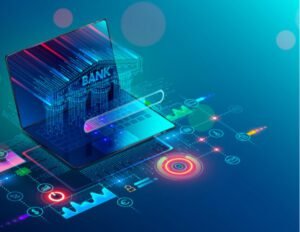Blockchain technology, which was initially synonymous with cryptocurrencies like Bitcoin, has surpassed its original purpose. Today, it serves as a transformative force with applications that extend far beyond the realm of digital currencies. This article delves into the various industries that are embracing blockchain technology and the innovative solutions it presents.


The Foundations of Blockchain
Before we explore its applications, let’s briefly revisit what blockchain technology entails:
- Decentralization: Unlike traditional centralized systems, blockchain operates on a network of computers that are decentralized, offering transparency and security.
- Immutable Ledger: Once data is recorded on a blockchain, it becomes incredibly challenging to alter, ensuring the integrity of data.
- Smart Contracts: Blockchain enables the use of self-executing smart contracts, automating processes based on predefined rules.
Applications Areas of Blockchain Technology
Banking
If you send $100 to your friend using a traditional bank, they will deduct a $10 fee, leaving only $90 for your friend. If your friend is overseas, the amount they receive will be even less due to transfer rates and hidden fees. This process is both time-consuming and expensive, and there is no guarantee of 100% security.
Blockchain, on the other hand, disrupts the commercial banking system by offering a secure and cost-effective peer-to-peer payment system. There is no central authority, which means you do not have to pay any third party. Your transaction to your friend is recorded in a ledger that can be viewed and reviewed by any cryptocurrency user, giving you complete control over your transaction. Additionally, Crypto cards further bridge the gap by allowing users to spend their cryptocurrency holdings directly or convert them to fiat currency for everyday purchases.
Blockchain Smart Contracts
Smart contracts software operates on blockchain-based platforms that automate agreement execution, reducing reliance on intermediaries. It enables trusted transactions and agreements between two parties without the need for a central authority.
AARP reports that investment scams and fraud caused Americans to lose a staggering $8.8 billion in 2022. It is just important to be aware of the risks when crypto trading and exchanging funds since transfers are irreversible and are often anonymous. To protect yourself from scammers and hackers, you should use a VPN for crypto trading. Most traders value crypto trading privacy VPN, which is why they choose anonymous forms of exchanging funds and decentralized platforms. VPNs also provide an additional layer of security. For example, VeePN can protect against phishing, packet sniffing, device virus infection, etc.
Share Medical Information
Doctors and medical professionals can access accurate and up-to-date patient information by storing medical records on a blockchain. This allows patients receiving care from multiple doctors to receive optimal treatment. It also expedites the retrieval of medical records, enabling more timely treatment when needed.
Secure Personal Information
Storing personal information like your Social Security number, date of birth, and other identifying data on a public ledger, such as a blockchain, offers enhanced security compared to conventional systems that are more vulnerable to hacks. Blockchain technology enables secure access to identification information. Although VPN free downloads still remain relevant to improve privacy, blockchain plays an important role. It is useful for everyone who strives for true privacy on the Internet.
Data Storage
A data storage solution can enhance security and integrity by incorporating blockchain technology. Storing data in a decentralized manner makes it challenging for hackers to wipe out information on the network, compared to centralized storage providers with limited redundancy. Furthermore, data accessibility improves as it is not solely dependent on a single company’s operations. In certain instances, adopting blockchain for data storage can also lower costs.
Logistics


The shipping industry frequently complains about the lack of communication and transparency caused by the excessive number of logistics companies crowding the space. According to a study conducted jointly by Accenture and logistics giant DHL, there are over 500,000 shipping companies in the U.S., resulting in data siloing and transparency issues. The report argues that many of the problems affecting logistics and supply chain management can be solved by blockchain technology.
Government
Blockchain technology has the potential to put an end to voter fraud.
In the traditional voting process, most voters line up or send their votes by mail. Then, local authorities are responsible for counting the votes. Online voting is also an option, but it suffers from similar fraud issues due to a central authority.
Opting for blockchain technology emerges as the most sensible decision. With this approach, individuals can easily cast their votes online while maintaining anonymity. Officials can then count the votes with absolute accuracy, as each ID is linked to only one vote. Blockchain technology virtually eliminates the possibility of fraud since it is incredibly difficult to manipulate. Furthermore, once a vote is recorded in the ledger, it becomes immutable.
Conclusion
When we talk about blockchain, 95% immediately associate it with Bitcoin. Yes, Bitcoin is a household word, but the technology itself offers much more than cryptocurrency trading. This is a secure way to transfer data between different parties and does not require personal confirmation. When used wisely, blockchain can provide free management of one’s funds and data in a completely anonymous manner.






